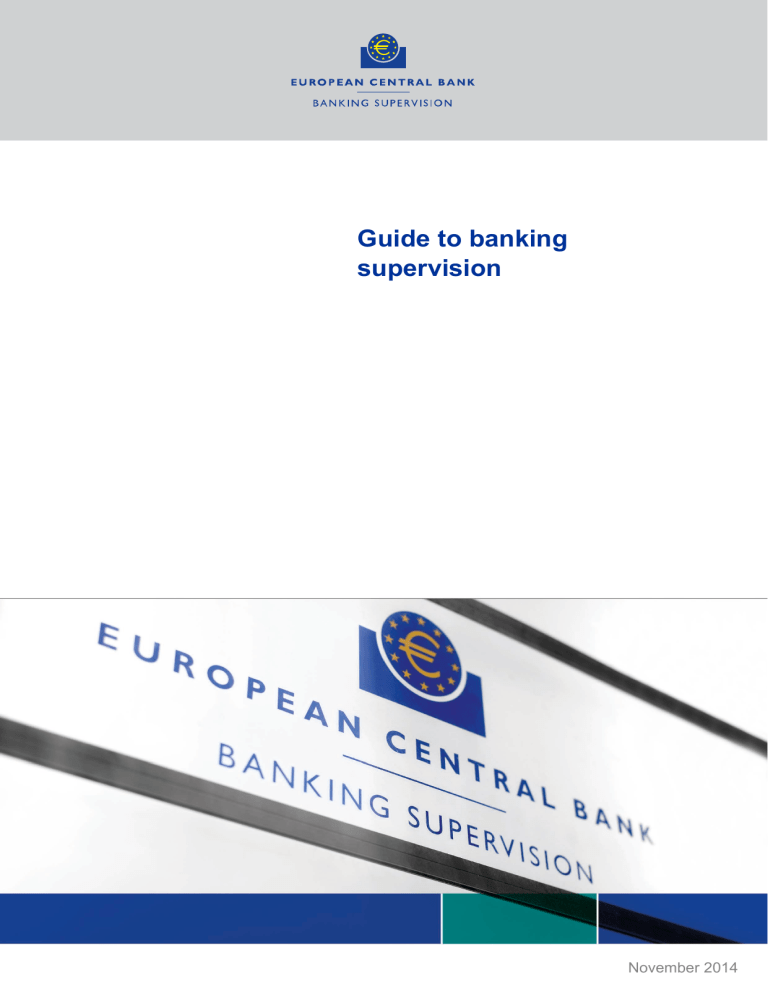New ECB Task Force Aims To Simplify Banking Supervision

Table of Contents
Reducing Complexity in Banking Regulations
The current ECB supervisory framework, while robust, is acknowledged as complex. Numerous regulations, often overlapping or ambiguous, create a significant administrative burden for banks of all sizes. The task force's primary goal is to address this complexity and create a more streamlined and understandable regulatory environment. This ECB Banking Supervision Simplification initiative aims to achieve this through several key strategies:
-
Streamlining reporting requirements for banks: The current system often demands excessive reporting, requiring banks to dedicate significant resources to data collection and submission. The task force plans to reduce this burden by identifying and eliminating unnecessary reporting requirements, focusing on data that is truly essential for effective supervision.
-
Clarifying ambiguous regulations and providing more concise guidance: Many existing regulations lack clarity, leading to inconsistencies in interpretation and implementation. The task force will work to clarify ambiguous language, providing more concise and readily understandable guidance to banks. This includes creating easily accessible FAQs and explanatory documents.
-
Developing a more consistent and harmonized approach across different banking sectors: The current framework sometimes applies different rules to different banking sectors, creating inconsistencies. The task force aims to harmonize the approach, applying a more consistent regulatory framework across all sectors, fostering a fairer and more level playing field.
-
Utilizing technology to improve data collection and analysis: The task force will explore the use of technology, including data analytics and AI, to improve data collection and analysis processes. This will not only streamline reporting but also enhance the ECB's ability to identify and address potential risks more effectively. This will involve exploring possibilities such as standardized reporting formats and automated data validation.
Enhancing Efficiency in the Supervisory Process
Beyond simplifying regulations, the task force aims to significantly enhance the efficiency of the ECB's supervisory process. A more efficient process reduces the burden on banks while ensuring the ECB maintains its supervisory effectiveness. The key areas of focus include:
-
Improving communication and collaboration between the ECB and supervised banks: Enhanced communication channels and more frequent interactions will help clarify expectations, address concerns proactively, and reduce misunderstandings. This includes exploring the use of digital communication platforms and regular stakeholder meetings.
-
Implementing more efficient risk assessment methodologies: The task force will investigate and implement more efficient risk assessment methodologies, leveraging data analytics and technology to improve the speed and accuracy of supervisory reviews. This could involve incorporating machine learning algorithms to identify potential risks more effectively.
-
Leveraging data analytics and technology to improve the speed and accuracy of supervisory reviews: The adoption of advanced analytics will allow the ECB to process large datasets rapidly, identifying trends and potential risks far more efficiently than current manual processes.
-
Reducing unnecessary paperwork and administrative tasks: By automating tasks and streamlining workflows, the ECB aims to significantly reduce the administrative burden associated with the supervisory process, freeing up resources for more strategic supervisory activities.
Promoting a Level Playing Field for Banks
A key goal of the ECB Banking Supervision Simplification initiative is to ensure a level playing field for all banks within the Eurozone, regardless of size. This is crucial for fostering a competitive and innovative banking sector. The task force will focus on:
-
Ensuring consistent application of regulations across all banks, regardless of size: This means eliminating any disproportionate burdens placed on smaller banks due to the complexity of existing regulations.
-
Reducing the disproportionate burden on smaller banks: Smaller banks often lack the resources to navigate complex regulations, placing them at a disadvantage. The simplification efforts will aim to alleviate this burden, fostering fairer competition.
-
Promoting a more competitive and innovative banking landscape: A simplified and more efficient regulatory environment encourages innovation and competition, leading to greater choice and better services for consumers.
-
Addressing potential concerns about regulatory arbitrage: The task force will ensure that the simplified framework does not create loopholes or opportunities for regulatory arbitrage, maintaining the integrity and effectiveness of the supervisory system. This includes focusing on consistent application of rules across jurisdictions. The impact on SMEs and access to credit is also under careful consideration.
Potential Challenges and Risks in ECB Banking Supervision Simplification
While the initiative is ambitious and promising, the task force faces several potential challenges:
-
Resistance from banks to change and adoption of new procedures: Banks may be resistant to adopting new procedures, requiring a carefully managed transition process to ensure smooth implementation.
-
Ensuring that simplification does not compromise the effectiveness of supervision: The primary goal is to simplify without sacrificing the effectiveness of banking supervision. A robust risk assessment will be crucial.
-
Managing the transition process smoothly and minimizing disruption: Implementing significant changes requires careful planning and execution to minimize disruption to both the ECB and the banks it supervises.
-
Balancing simplification with maintaining robust regulatory oversight: Finding the right balance between simplification and maintaining stringent regulatory oversight is crucial to ensure financial stability. This will require constant monitoring and evaluation.
Conclusion
The establishment of the new ECB task force marks a crucial step towards ECB Banking Supervision Simplification within the Eurozone. Streamlining regulations, enhancing efficiency, and ensuring a level playing field for all banks will undoubtedly contribute to a more stable and competitive financial sector. However, successfully overcoming the challenges will be vital. Staying updated on the progress of these efforts is paramount for all stakeholders. Regularly consult the ECB's website and reputable financial news sources for the latest developments in this important area.

Featured Posts
-
 Why Are Fewer Canadians Buying Electric Vehicles
Apr 27, 2025
Why Are Fewer Canadians Buying Electric Vehicles
Apr 27, 2025 -
 Top Seed Pegula Triumphs Over Collins In Charleston Final
Apr 27, 2025
Top Seed Pegula Triumphs Over Collins In Charleston Final
Apr 27, 2025 -
 2025 Nfl International Series Green Bay Packers Potential Participation
Apr 27, 2025
2025 Nfl International Series Green Bay Packers Potential Participation
Apr 27, 2025 -
 Resistance Mounts Car Dealers Renew Opposition To Ev Mandates
Apr 27, 2025
Resistance Mounts Car Dealers Renew Opposition To Ev Mandates
Apr 27, 2025 -
 Artikel 40 Absatz 1 Wp Hg Pne Ag Gibt Bekannt
Apr 27, 2025
Artikel 40 Absatz 1 Wp Hg Pne Ag Gibt Bekannt
Apr 27, 2025
